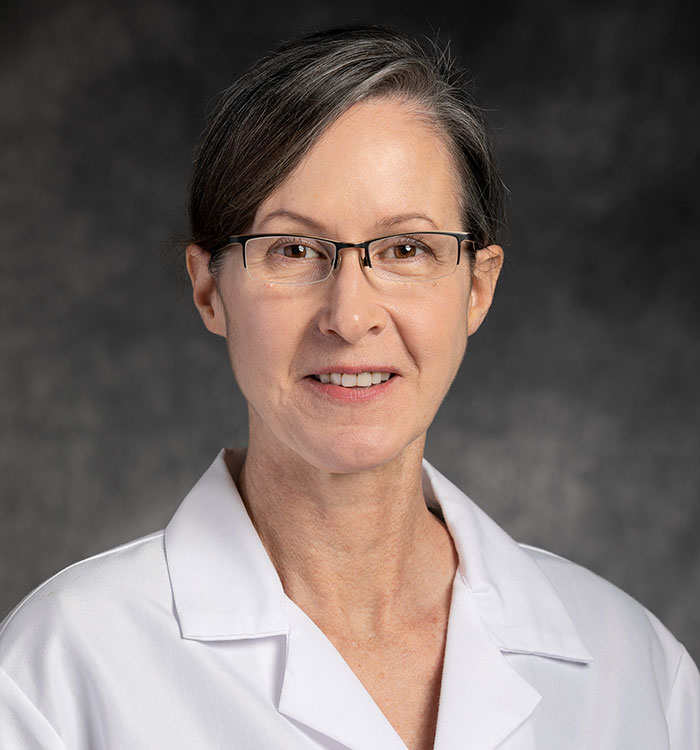Second Integrative Medicine Physician Joins UH Connor Integrative Health Network
March 24, 2021
Keary O’Connor, DO, prizes connecting and communicating with people
UH Clinical Update | March 2021
Keary O’Connor, DO has a family tree that abounds with close relatives who are physicians, but that’s not how or why she got into medicine.
 Keary O'Connor, DO
Keary O'Connor, DOBy the time she entered medical school in her 30s – after working for GE in customer service and sales – she knew it was exactly what she was meant to do.
“I came around to it on my own,” Dr. O’Connor says, having realized through her previous work that she had an aptitude for connecting and communicating with people. “I gravitated to learning what brought people to the situations they were in.”
That quality is particularly apt in her new role as an integrative medicine physician at University Hospitals Connor Integrative Health Network. She is the second such physician, a position that was added because of high patient demand. Kristen Kaelber, MD, PhD, joined UH Connor as an integrative medicine physician in 2019.
Integrative medicine, as offered through UH Connor, emphasizes the relationship between the clinician and patient and focuses on the whole person to achieve optimal health and healing.
Francoise Adan, MD, who leads UH Connor and is the UH Chief Whole Health & Well-being Officer, puts it this way: “At University Hospitals, Integrative Medicine is incorporated within the rest of the patient’s treatment team. We all work together, one patient at a time.”
Dr. O’Connor grew up in South Central Michigan, but since becoming a physician, she has lived and practiced in a number of cities around the country, and around the globe – most recently, in Westwego, Louisiana, not far from New Orleans.
It wasn’t long after medical school and a residency and internship in family medicine that she joined the military as an officer. “I had always wanted to serve in the U.S. Army,” she says. “I had the desire for the order and discipline that the military calls for.”
She committed to eight years of service as a physician – four of them active – and was stationed first in Texas, then in Germany, Kuwait and Iraq.
After the service, she practiced medicine in Michigan, but also began to delve more deeply into the aspects of medicine that especially interested her. She got a certificate in Medical Nutrition therapy from the Columbia University College of Physicians and Surgeons, as well certificates in Leadership in Integrative Healthcare from Duke University and Plant Based Nutrition from the T. Colin Campbell Center for Nutrition Studies. She also is a Diplomate of the American Board of Lifestyle Medicine and the American Board of Obesity Medicine.
Her work as a physician is infused by her knowing that so many chronic conditions that patients face are preventable.
“My goal has always been to find a better way for the patient,” Dr. O’Connor says. “I know that patients can have a locus of control over their lives, and outcomes.”
A big part of that is by beginning to follow a lifestyle that decreases inflammation in the body – and she has seen in her patients the dramatic effects that this can have.
But she also understands that it’s not always easy for a patient to change many years’ worth of habits, especially when it comes to food. That’s why she encourages them to start with one thing – a step by step approach, perhaps one that starts with adding fiber to their diet, which can increase satiety and lower cholesterol.
“I tell them they will feel better, and their mood will be better, and they see it for themselves,” she says. “It’s the simplest things, but patients are often receptive. As a physician you have to meet them where they are and find out what is making them tick.”
Some recent patients, who lived in the bayous where they enjoyed rich or fried foods, at first told her there was no way they’d give up meat. But they were willing to start by eating more rice and beans, which also are a hallmark of Southern fare.
“I had a 75–year-old gentleman who came in and I spent an hour with him and his daughter,” she says, offering some healthy habits he could start incorporating. “He came back in six weeks, having lost 25 lbs., and within two more months, had lost more than 50 lbs. His A1C went to 5, which is ideal.
“The results are real.”
At UH Connor, patients can also avail themselves of other therapies, including chiropractic care, acupuncture and massage; they also learn how to reduce stress through mindfulness, meditation, and yoga.
Dr. O’Connor cites the fact that about 75 percent of visits to primary care physicians are for conditions related to a patient’s lifestyle. While prescription medicine might improve some of their numbers, “I ask my patients, ‘But do you feel better?’”
She knows from her own experience that taking steps in the direction of better health habits takes practice.
“No one is perfect – and one of the most important things I’ve learned is to have self-compassion. “


